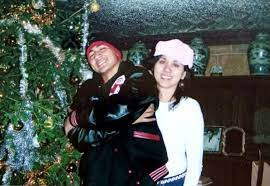Book Review Concepcion : An Immigrant Family's Fortunes by Albert Samaha.
This book's tale of immigrant striving is haunted by a parallel story of American decline. The Concepcions who arrived in the 1970s and 80s didn't land on the placid shores of an American dream.
''In the States, life felt shaky, cramped, rushed, an endless series of complications, adjustments and sacrifices,'' Samaha writes. ''Everybody seemed to be toiling all the time.''
''Why was America so kind and yet so cruel?'' Carlos Bulosan wrote ''America is in the Heart,'' his 1943 semi-autobiographical novel about a young Filipino immigrant bewildered by the paradox of his new home.
In the United States, he found racism, callousness and brutality; but he also found good will, tolerance and generosity. ''Was there no way to simplify things in this continent so that suffering would be minimized?'' Bulosan wrote. ''Was there no common denominator on which we could all meet?''
Similar questions wend their through the journalist Albert Samaha's ''Concepcion.'' an immense memoir about his own family's journey from the Philippines to the United States, where he was born and raised by his mother, Lucy - a devout Catholic whose family abhorred the dictatorship of Ferdinand Marcos.
In recent years, she has become a staunch Donald Trump supporter and fervent believer in QAnon. Samaha and his mother continue to love and support each other, but in some ways she exemplifies the paradoxes that Bulsan puzzled over nearly eight decades before.
Her Twitter feed, Samaha says, was like a ''surreal mash-up'' of her very real yet seemingly incommensurate interests. She demonstrated her affection for both Trump and her only child by promoting QAnon conspiracy theory along with Samaha's pieces for BuzzFeed about police misconduct.
''I hope @POTUS & @DOJ would read the investigative criminal justice stories of @AlbertSamaha,'' she once tweeted, adding ''#TRUMP2020.'' It was apparently too much for even the Twitter algorithm to handle, and her account was suspended on suspicion that she was a bot.
If ''Concepcion'' were only about Samaha's mother, it would already be wholly worthwhile. But she was one of eight children in the Concepcion family, whose ancestry Samaha traces in this sprawling and powerful book back to the Sultanates that preceded the Spanish Empire's arrival in the Philippines.
His-great-great-grandmother was a Muslim princess who converted to Catholicism. In another branch of the family, his ancestors joined the 19th century independence movement.
His mother's parents would meet decades later in a classroom in the island of Mindanao, in the southern Philippines, when the country was part of the American empire.
''As history would have it,'' Samaha writes, with a finely tuned sense of irony, ''the descendants of revolutionaries and sultans fell in love inside a school with the U.S. flag flying out front.''
Piecing together historical records with family lore, Samaha offers striking recreations of his ancestors' lives. When the country gained independence in 1946, the Concepcion was well placed to become well-to-do.
His grandfather was a civil attorney; his grandmother was an accountant. They moved to bustling Quezon City, where they could afford a retinue - drivers, maids and nannies to help them raise their children.
But the Philippines didn't feel stable, especially when Marcos, who was elected President in 1965, decided he wanted to stay in power and declared martial law. Nineteen sixty-five also happened to be the year when the American immigration system eliminated its race-based quotas, smoothing the way for the Concepcions to join a few relatives who had already managed to make their way to California.
While Samaha unsuccessfully tries to coax his mother from the rabbit hole of right-wing conspiracy theorizing, it's hard to see how her faith in self-styled strongmen like Duterte and Trump is as much reaction to institutional collapse as it is a hastener of it.
She keeps a framed photo of Trump on her bookshelf, just below a figurine of Pope Francis. Samaha loves her too much and knows her too well to flatten her contradictions into a caricature.
Even when he and his mother don't agree on the basic contours of reality, he still feels irrevocably connected to her.
'' At least my mom was happy,'' he writes, as the Trump years filled her with hope and him with despair. ''I counted my blessings, just like she taught me.''
The World Students Society thanks review author Jennifer Szalai.

.png)


0 comments:
Post a Comment
Grace A Comment!